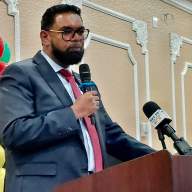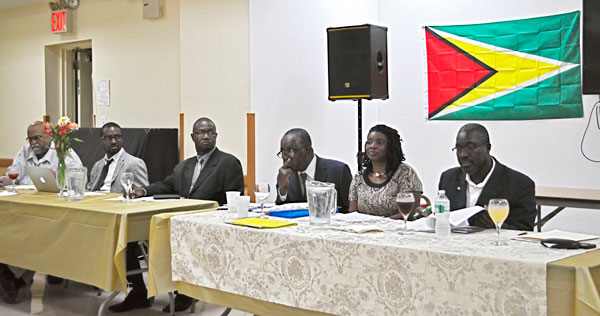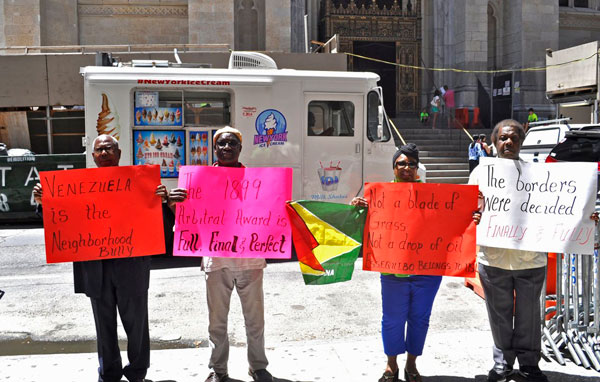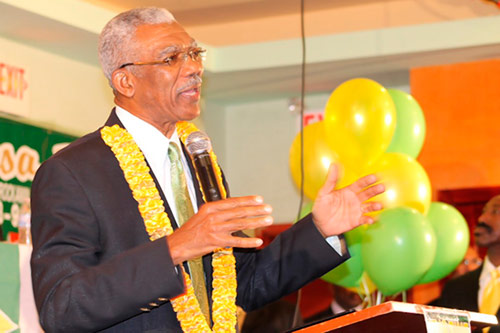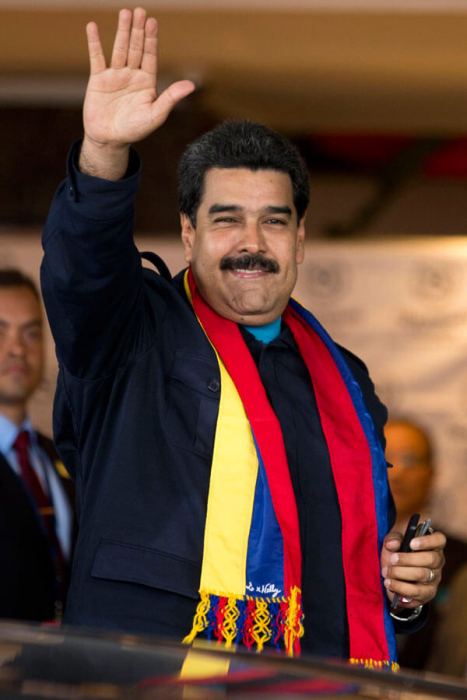The sub-regional Organisation of Eastern Caribbean States (OECS) has expressed “grave concern” about the increasing tension in relations between the United States and Venezuela.
Earlier this month, U.S. President Barack Obama declared a national emergency with respect to the “unusual and extraordinary threat to the national security and foreign policy of the United States posed by the situation in Venezuela.”
Pursuant to the International Emergency Economic Powers Act (IEEPA), Obama said that the order does not target the people of Venezuela but, rather, is aimed at persons “involved in or responsible for the erosion of human rights guarantees, persecution of political opponents, curtailment of press freedoms, use of violence and human rights violations and abuses in response to antigovernment protests, and arbitrary arrest and detention of antigovernment protestors, as well as the exacerbating presence of significant public corruption in that country.”
But the OECS said in a statement on Friday that it “cherishes the principles of democracy and the rule of law, and peaceful coexistence and respect for the sovereignty and territorial integrity of states.
“The OECS also values highly, the longstanding friendship of its neighbors the United States of America and Venezuela, countries which constitute perpetual, integral and indivisible parts of our hemisphere,” it said, adding that “unilateral and unwarranted actions only serve to undermine these principles.”
The OECS said it was “deeply concerned that statements and actions in the recent past concerning the relations between the United States and Venezuela have served only to heighten tensions in the relations between those countries, and to undermine the peace and security of the region and the hemisphere as a whole.”
The OECS, therefore, called for a return to the “spirit and practice of dialogue as the principal means to the resolution of differences and conflict.”
Additionally, the OECS called on both countries to refrain from actions and statements, “which serve to hamper the legitimate desires of the people of our hemisphere for peace as a foundation upon which to build a better future.”
In a letter to the Speaker of the U.S. House of Representatives, John Boehner, Obama said his order implements the Venezuela Defense of Human Rights and Civil Society Act of 2014 (Public Law 113-278), which he signed on Dec. 18, 2014, and delegates certain of its authorities.
He said the order blocks the property and interests in property of persons listed in an Annex to the order and would block the property and interests in property of any person determined by the secretary of the treasury, in consultation with the secretary of state.
The U.S. president said those persons are responsible for or complicit in, or responsible for ordering, controlling, or otherwise directing, or to have participated in, directly or indirectly, in “actions or policies that undermine democratic processes or institutions.”
Additionally, the president said those persons were responsible for “significant acts of violence or conduct that constitutes a serious abuse or violation of human rights, including against persons involved in antigovernment protests in Venezuela in or since February 2014.”
Obama said their actions prohibit, limit, or penalize the exercise of freedom of expression or peaceful assembly, charging that there was “public corruption by senior officials within the government of Venezuela.”
He said the order suspends entry into the United States of “any alien listed in the Annex or determined to meet one or more of the above criteria.”
Obama said he has delegated to the secretary of the treasury the authority, in consultation with the secretary of state, to take such actions, including the promulgation of rules and regulations, and to “employ all powers granted to the president by IEEPA and relevant provisions of the Act as may be necessary to carry out the purposes of the order, other than the provision suspending entry into the United States of certain aliens, and to carry out the related provisions of the act.”
The president said the United States is “committed to advancing respect for human rights, safeguarding democratic institutions, and protecting the U.S. financial system from the illicit financial flows from public corruption in Venezuela.”
A White House statement later said that past and present Venezuelan officials who violate the human rights of Venezuelan citizens and engage in acts of public corruption “will not be welcome here, and we now have the tools to block their assets and their use of U.S. financial systems.
“We are deeply concerned by the Venezuelan government’s efforts to escalate intimidation of its political opponents,” it said. “Venezuela’s problems cannot be solved by criminalizing dissent.”
The U.S. said it has “consistently called on the Venezuelan government to release those it has unjustly jailed, as well as to improve the climate of respect for human rights and fundamental freedoms, such as the freedoms of expression and peaceful assembly.
“These are essential to a functioning democracy, and the Venezuelan government has an obligation to protect these fundamental freedoms,” it said, calling on the Venezuelan government to release all political prisoners, including dozens of students, opposition leader Leopoldo Lopez and Mayors Daniel Ceballos and Antonio Ledezma.
“The only way to solve Venezuela’s problems is through real dialogue – not detaining opponents and attempting to silence critics,” the statement said. “The Venezuelan people deserve a government that lives up to its commitment to democracy, as articulated in the OAS Charter, the Inter American Democratic Charter, and other fundamental instruments related to democracy and human rights.”
The U.S. said it was “unfortunate that during a time when we have opened up engagement with every nation in the Americas, Venezuela has opted to go in the opposite direction,” adding that, despite the difficulties in our official relationship, the United States remains committed to maintaining our strong and lasting ties with the people of Venezuela and is open to improving our relationship with the Venezuelan government.”












